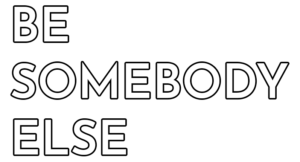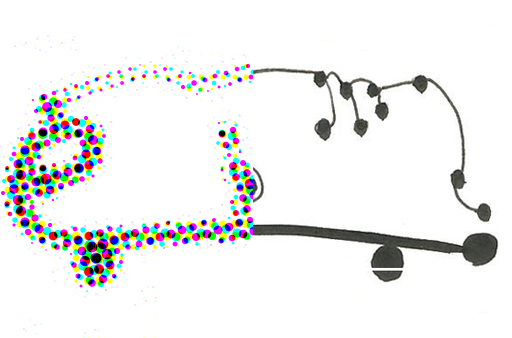by Tom Tomaszewski | Mar 27, 2024 | Be Somebody Else, HELPLESSNESS, MONOTONY

HELPLESSNESS / RAGE
Does your mind turn angrily to things you wish you could forget? It’s as if someone’s turned the heat up too high; a kind of friction with the past. These things seem to hang around waiting for an opportunity to get noticed. Maybe a small thing occurs and suddenly you’re back with them, all over again.
Resentful thoughts involve events in which you believe you were unable to represent yourself properly. For one reason or another the truth of the situation remains unrecognised. If you want to have fewer angry, resentful thoughts you need to feel recognised. Doing this can be like adjusting the thermostat of a heating system.
Everyday things say everything
Think about everyday things in your life and see if you can rate them in terms of how angry they make you feel now. Not when they happened, but right now. Hopefully, with them being everyday things, the majority will score a zero. But if they score twos or threes you may have a problem. All of those twos and threes can add up to a storm that feels more like a seven plus three.
Zero feels like a two
What can you do if a zero feels like a two? The ‘whole memory thing’ is liable to keep you thinking about the past, but you need to do something about the future, and you’d better get started.
Are your ‘everyday things’ actually things that are crucial to you but ones that the people around you ignore? Is there a theme underlying everything you feel angry about? Perhaps this theme rather than a lot of different events explains why you are feeling two or three, or maybe even more.
It’s very likely you are angry about something in general rather than the effects of specific things in isolation. Those ‘everyday things’ will involve a particular sense of injustice that you need to give meaning to. Maybe it’s something you can feel much more than describe. That’s okay, go with the feeling and some thoughts will arrive.
The justice emotion
Anger is the justice emotion. It should rise up when you experience what you regard as injustice, motivating you to stop or start something. If you experience a lot of injustice you’ll be seeing it in all kinds of things, small as well as large. The size of the ‘thing’ itself doesn’t matter: injustice is most likely to lurk in the small things people do that they think about least. At the same time they show themselves most.
If I find myself getting treated poorly because of something intrinsic to me (I get looked at in a certain way, for example, as I enter a building and am met with silence), and maybe I then see someone else being treated differently because of how they intrinsically are (they get smiled at and greeted respectfully) … my day is going to take a hit of anger. Moments of injustice like these will feel like links on a chain.
Search for openness
Look for people who are open to you as you are. Search for that openness in as many places as you can: you’ll feel it right away. Maybe you have stopped looking. You’re ability to SEEK has gone to sleep. Wake it up by finding the feeling of openness.
The feeling you get when you connect in that openness is the feeling of understanding, and understanding is the best signpost to justice. Trying to find justice on your own is the worst. Looking for it with other people, even if you find those other people in something like a book or a film, is better.
This is how you can start to turn the thermostat down.
by Tom Tomaszewski | Mar 20, 2024 | Be Somebody Else, FRUSTRATION

FRUSTRATION / CARE
I’ve written about being at the centre of your own solar system somewhere else, but a talk I listened to at the weekend made me think about it again.
Think about the relationships in your life and how intensely you’d cling on to whatever they contain. That clinging involves the stuff of Panksepp’s emotional instincts. Life, it seems, depends on how we respond affectively, our emotions guiding our thoughts towards ‘what supports out survival and detracts from our survival’.
Struggles with intensity
That’s what this blog is about. I could have called it ‘struggles with intensity’, those struggles meaning whether or not you get stuck. As an EMDR therapist I spend every working day experiencing the extraordinarily different ways in which people react to intense or diminished feeling. Sometimes they might call this an emotion, the subjective way of categorising feeling that we assume everybody is broadly aligned to. Other times they might only be able to draw attention to some kind of sensation in their body that feels out of place. EMDR, according to Francine Shapiro’s AIP (advanced information processing) model, is an excellent way of getting unstuck.
Going back to those relationships in your life, ask yourself: what do you do to cling on to them? Pathological clinging, as the Buddha pointed out, is not a blast.
Your own solar system
Draw yourself a map of your own ‘solar system’ like the one below and see what it looks like when you rate your relationships in terms of uncomfortable intensity. It’ll give you a good idea of how stuck you are and maybe where the main sticking points are. You’ll be looking at symptoms, of course, but go with that. Look into those relationships and see what causes conflicts.

In this example there are a number of what feel like stable relationships. As life goes on, day to day, there may be good and bad moments but the relationship feels consistent (it has a predictable orbit). Whatever’s included feels at a similar level of intensity. The volatile relationships, however, veer between being very close up and very distant. Think about what that looks like as an orbit and imagine the havoc that would cause in any solar system.
Havoc in your life
A scenario like this will be causing havoc in your life. What kinds of compromise might lead to work feeling suffocating or barely there? Is this person unable to press for a promotion because they cannot assert themselves? Maybe they perform their duties extremely well in the hope they might ‘care’ their way there. A conflict like this, in which CARE supersedes RAGE (well, the lowest levels of it!) is very common. It might be the result of having an angry or a passive parent. Is this you? Are you known to CARE really hard? Do you often feel unrewarded, abandoned, and frustrated?
Study your own map and look for what doesn’t feel real. Or are there relationships where important things don’t get said? That’s unreal. Life will be being lived without attention to the whole story. Sometimes this is essential but often it’s not. It’s a big part of why someone like you gets stuck.
Homeostasis
At the bottom right corner of the illustration the are the words ‘HOMEOSTASIS’ and ‘ENTROPY’. Don’t worry too much for now about these: they refer to a clinical way of approaching life. Imagine, though, that your emotions are there to help you achieve a state of homeostasis where you aren’t running down your battery all of the time. Living an unreal life is one of the most depleting things you can do. Conflicts never get dealt with because they are not acknowledged.
Look to be as real as possible and you will resource yourself. You will be far less likely to get stuck.
Satellite of Love
What’s all this got to do with Satellites of Love? All love is narcissistic. Satellite of Love is a beautiful, soulful Lou Reed song that says something about the strangeness of this and everything I’ve tried to include here. It’s a song that spills over into things that feel impossible to get hold of or understand. David Bowie produced it with Mick Ronson (who also plays guitar on the song) but Mick Ronson never received any credit.
All of this: all the stuff of relationships and a reason for me to (narcissistically) include this (thanks to my babysitter, a very good relationship, it’s among my earliest memories). Better have this, too.
When it’s not part of a living nightmare narcissism can be the gift that keeps giving.
by Tom Tomaszewski | Mar 6, 2024 | ALIENATION, DESOLATION, FRUSTRATION, HELPLESSNESS, HESITATION, INEXPERIENCE, MONOTONY
Insight and information can help you avoid repeating past ways of feeling, thinking and acting. You need to protect your capacity to think with that information, rather than to remember it. Your capacity to think freely is what will keep you safe and doing life the way you want.
Here are three things that you can do three times each day which will help prevent your body from becoming overloaded by negative intensity… worries, resentments and so on … the kinds of thing that will leave you stuck. causes a loss, sometimes a radical loss, of momentum. These three things promote positive intensity: the joy of being able to feel relaxed and thoughtful, the pleasure of being in harmony with your life, and the ability to start and stop things when you need to.
Box Breathing
Experiment with different amounts of time for the in-breath, pause and out-breath to see what suits you most for a situation. Box breathing is something you can always turn to discreetly
Don’t get taken for a ride
Stop being taken for a ride. Go and see films specifically to explore whether staying watching them or leaving is the best option. After you leave you need to be able to tell someone why you left. How long can you stay before you’re confident the film is not going to deliver what you need? You can experiment like this with any kind of experience, really. Always hold a place for your right to leave, work out how to do this in ways that feel right for you and others (ie storming out might not be the best option – quietly departing might be instead. Do you really want to make a point? What will the effect of that be on?
Instant sound bath
Buy a tuning fork or two and sound these close to your ear for an instant experience of being present in the world, connected to something outside of you that leaves you feel grounded in yourself.
by Tom Tomaszewski | Mar 3, 2024 | HESITATION

HESITATION / PANIC
People who have been traumatised might tolerate things well. Their instinct for how long to stick with a difficulty or how much to absorb its effects (often complication, anxiety and irritation) may be just about right. On the other hand they are likely to have tolerance problems. They’ll panic and have faith, hope and trust in nobody and nothing, or in anyone and everything.
Faith, hope and trust
Someone once wrote to me: ‘faith, hope, trust’. They weren’t writing about anything in particular, just offering me three words. These are three words that traumatised people might long to invest thought and feeling in. To have faith, to hope and to have trust. Whatever’s happened to you I imagine it’s messed with your sense of these qualities, ones that are fundamental to relationships. Without faith, hope and trust, what’s a relationship?
Try having no faith, hope or trust
Yes, try it. It’s almost impossible, but what emerges is still worth embracing because of what might emerge from that faulty, incomplete but nonetheless un-clinging place. To have faith, hope and trust is to cling on. Imre Hermann writes about a ‘clinging’ instinct that involves the kind of PANIC that Panksepp writes about and his version of attachment theory gives us clues about how to find faith, hope and trust.
You need to find faith, hope and trust
Faith, hope and trust need to develop out of a sense of need, not to be served up on a plate. Faith, hope and trust served up on a plate usually ends up tasting awful. So after you try to have no faith, hope and trust see what cooks up. You are far less likely to be disappointed and PANIC.
Disappointment and tolerance
Trusting a sense of faith in someone or something can lead to the end of hope, not the beginning. Hopelessness usually arises out of idealisation and over-valuation (or other ways of valuing, not least undervaluing, which is different from not valuing.
Refuse faith, hope and trust
Maybe the best you can do is to refuse faith, hope and trust until you find that refusal leads to you being offered something else. The pain that comes from losing these qualities, from feeling abandoned or let down is something a traumatised person has already experienced – radically. You don’t want it to happen again.
What else?
You don’t know until it is there. But you will know that whatever arrives, maybe the possibility of a relationship or some other form of security feels real. Refusing faith, hope and trust will make reality dawn on you. At some point you step into something like daylight. This is real. Whatever’s real you can do something with – anything unreal will amount to nothing. Remember, feelings are real. Words do things, as AJ Austin wrote. Faith, hope and trust are keys to living well.






